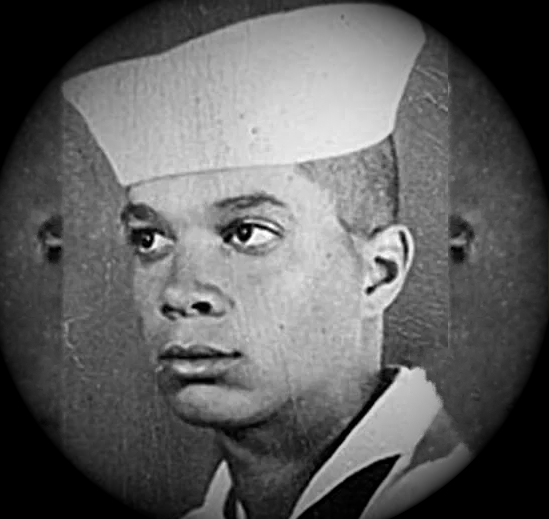A Young Life Cut Short in the Struggle for Equality
On a cold January evening in 1966, the streets of Tuskegee, Alabama became the stage for a killing that would quietly change American history. Samuel Leamon Younge Jr., just 21 years old and a Navy veteran studying political science at Tuskegee Institute, approached a Standard Oil gas station. What happened next would make him the first Black college student activist murdered during the Civil Rights Movement, yet his name remains largely unknown to most Americans.
Who Was Sammy Younge Jr.?
Born on November 17, 1944, in Tuskegee, Alabama, Sammy came from an educated family. His father worked as an occupational therapist, and his mother was a local schoolteacher. After attending Cornwall Academy in Massachusetts as a teenager, he graduated from Tuskegee Institute High School in 1962 and immediately enlisted in the United States Navy.
After serving his country for two years, Younge received a medical discharge in July 1964 following the removal of one of his kidneys. Upon returning home, he enrolled at Tuskegee Institute to study political science in 1965. It was here that his commitment to civil rights would flourish—and ultimately lead to his death.
From Navy Veteran to Civil Rights Warrior
Despite having served his country in uniform, Younge returned to an America where he couldn’t even use the same restroom as white citizens. During his first semester at Tuskegee, he became deeply involved in the Civil Rights Movement.
Younge participated in the historic Selma to Montgomery march following the “Bloody Sunday” violence in March 1965. He joined the Student Nonviolent Coordinating Committee (SNCC) and the Tuskegee Institute Advancement League (TIAL), quickly emerging as a natural leader.
His civil rights work was relentless and brave. In Mississippi, he worked alongside civil rights icons Unita Blackwell and Fannie Lou Hamer to register Black voters. Back in Alabama, he led Tuskegee students in challenging segregation by attempting to enter white restaurants, holding rallies, and picketing businesses that refused to hire Black people. These actions came with severe consequences—he was physically beaten twice while trying to attend segregated white churches.
By September 1965, Younge was arrested and jailed after attempting to drive a group of African Americans to register to vote in Lee County, Alabama. Upon his release, he continued his voter registration efforts in Macon County right up until his death.
The Fatal Confrontation
On January 3, 1966, Younge’s life ended outside a Standard Oil station in Tuskegee. According to official accounts, he was shot in the face by Marvin Segrest, a 68-year-old white gas station attendant, following a verbal altercation over Younge’s attempt to use a “whites-only” bathroom.
However, a 2011 Justice Department report presented a different version of events, claiming that Younge had prior confrontations with Segrest and was intoxicated during their final encounter. This report suggests Younge was shot while running down an alley after retrieving a golf club during the altercation.
Regardless of the conflicting accounts, the aftermath revealed how justice operated differently for Black victims in 1960s Alabama.
Justice Denied
The day after the shooting, Segrest was arrested but released on $20,000 bond. His second-degree murder trial was strategically moved from Macon County, where Black residents outnumbered whites by a 2-to-1 margin, to Lee County where the demographics were more favorable to the defendant.
On December 8, 1966, after just one day of trial, an all-white jury found Segrest not guilty. The acquittal sparked outraged protests in Tuskegee, but the verdict stood.
A Pivotal Moment That Changed the Civil Rights Movement
What makes Younge’s murder particularly significant in American history is what happened three days after his death. On January 6, 1966, SNCC became the first civil rights organization to publicly oppose the Vietnam War.
In a historic statement, SNCC declared: “The murder of Samuel [Younge] in Tuskegee, Alabama, is no different than the murder of peasants in Vietnam, for both [Younge] and the Vietnamese sought, and are seeking, to secure the rights guaranteed them by law.”
This bold stance marked a turning point in American activism, connecting domestic civil rights struggles with international human rights concerns and forever changing the trajectory of both movements.
Why This Case Matters Today
The murder of Sammy Younge Jr. represents a critical juncture in American history that deserves wider recognition. His killing demonstrates how civil rights activists risked—and sometimes lost—their lives simply demanding the basic dignities most Americans take for granted today.
As his father poignantly stated after his son’s death: “This is an era of social revolution. In such revolutions, individuals sacrifice their lives.”
Younge’s story reminds us that the freedoms enjoyed today were purchased at a terrible price by brave individuals whose names have too often faded from public memory. By remembering Sammy Younge Jr., we honor not only his sacrifice but also reaffirm our collective responsibility to continue the work of building a more just society.


